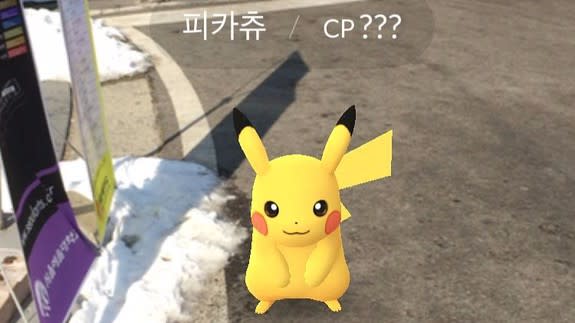'Pokémon Go' finally launches in South Korea

Pokémon Go has finally come to South Korea, more than six months after the global phenomenon launched in other regions.
While the South Korean smartphone market is among the more advanced globally, it took months for the mobile game to be released there because of government restrictions on Google Maps, which the game relies on.
SEE ALSO: 'Pokémon Go' banned in China over public safety concerns
South Korea's national security laws prevent companies like Google from exporting government-provided map data, which is necessary to power Pokémon Go's functions.
According to Korean media, the game's maker Niantic Labs had to figure out a workaround for its map in South Korea, so as not violate the law. Niantic didn't specify what that workaround was.
Because the country's release has been so belated, Pokémon trainers in the country ended up flocking to the tiny beach town of Sokcho in the country's northeast, which had somehow not been affected by the mapping restrictions.
Travel and hotel booking sites like Hotels.com noted last year that searches for Sokcho surged upon word getting round that the game worked there.
On Tuesday, eager players started catching Pokémon and posting their hunts on social media.
A photo posted by 하늘자리 진이 (@jini_i1) on Jan 23, 2017 at 4:29pm PST
This player says: "The last Pokémon (caught) in Sokcho has been well, and now I have to incubate (new) eggs."
A photo posted by 수 정❣ (@__soobong_) on Jan 23, 2017 at 8:12pm PST
A photo posted by 김상봉😁 (@musicianspace) on Jan 23, 2017 at 8:11pm PST
While the fever appears to have just begun in South Korea, it remains to be seen how long the excitement will last.
Just a couple of months after Pokémon Go was released in neighbouring Japan — the birthplace of Pokémon — a survey found that just a fraction of players were still into the game.
One of the biggest reasons for the drop-off was that people found the game repetitive, respondents said.

 Yahoo News
Yahoo News 